UC Law SF Center Explores Diversity in Alternative Dispute Resolution for its 20th Anniversary
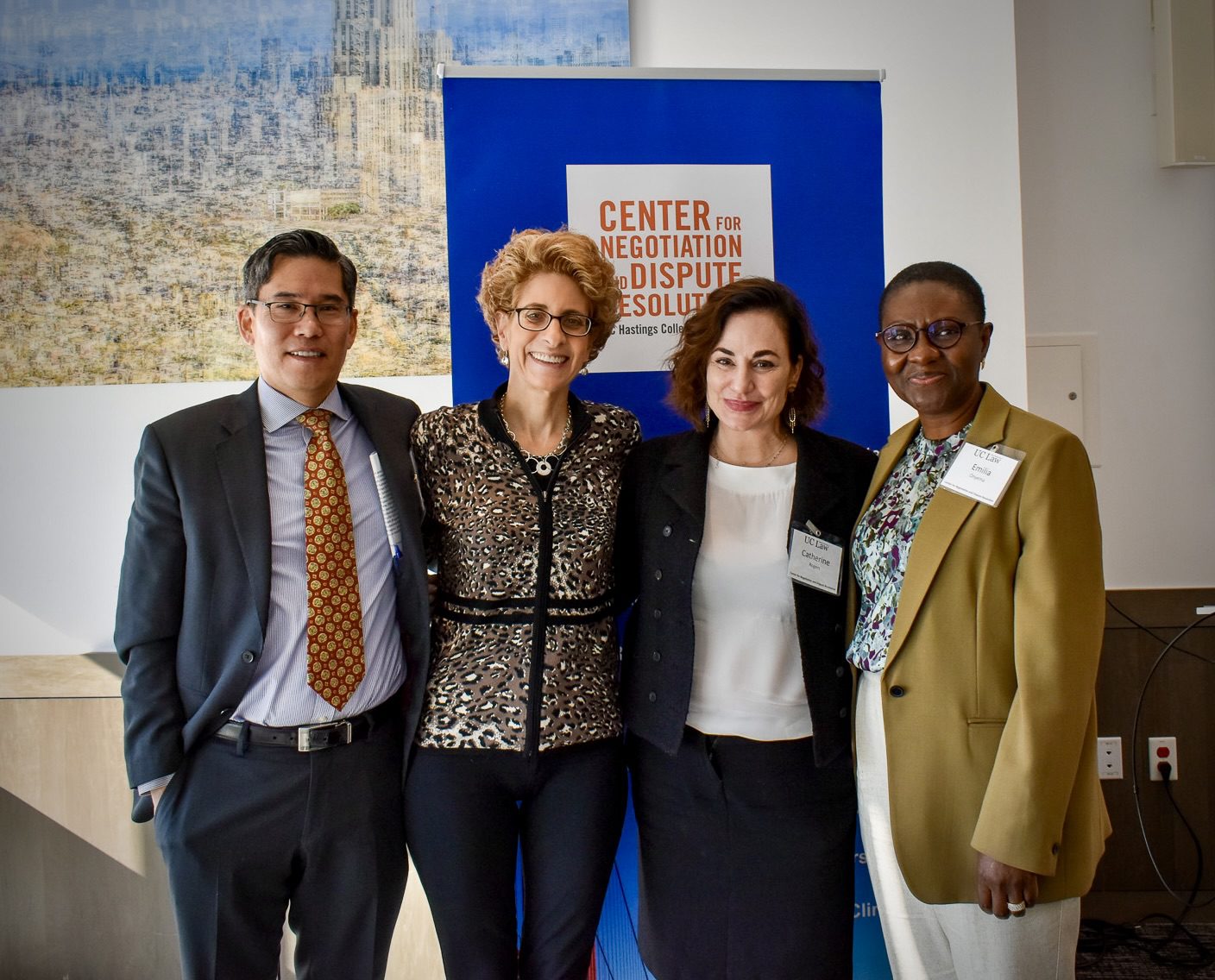
CNDR Director Hiro Aragaki, Ohio State University Law Professor Sarah Rudolph Cole, Bocconi University Law Professor Catherine Rogers, and SOAS University of London Law Professor Emilia Onyema (left to right) discussed diversity, equity, and inclusion (DEI) in international and domestic arbitration at the CNDR 20th Anniversary Conference on Nov. 3.
For its 20th anniversary this year, one of UC Law SF’s most celebrated centers marked two decades of triumphs in legal education, research, and practitioner training with an all-day conference exploring diversity in the field of Alternative Dispute Resolution (ADR).
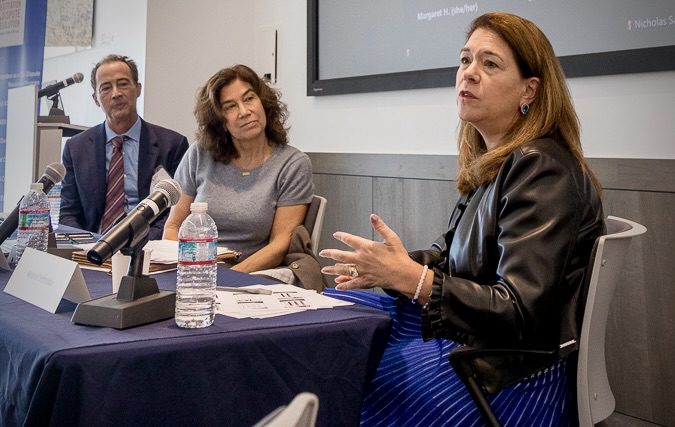
UC Law SF Professor Clark Freshamn, Ellen Waldman of the International Institute for Conflict Prevention and Resolution (CPR), and Yeshiva University Law Professor Andrea Kupfer Schneider (left to right) spoke about DEI in mediation and negotiation.
Launched in 2003, the Center for Negotiation and Dispute Resolution (CNDR) has consistently ranked as one of the top ADR programs in the nation. It has received multiple awards for its training and education programs, and its students have repeatedly won national competitions for negotiation and dispute resolution.
Building on those successes as it continues to tackle cutting-edge topics, the Center celebrated its anniversary this year with a full-day conference on a key subject in the ADR field: diversity, equity, and inclusion (DEI).
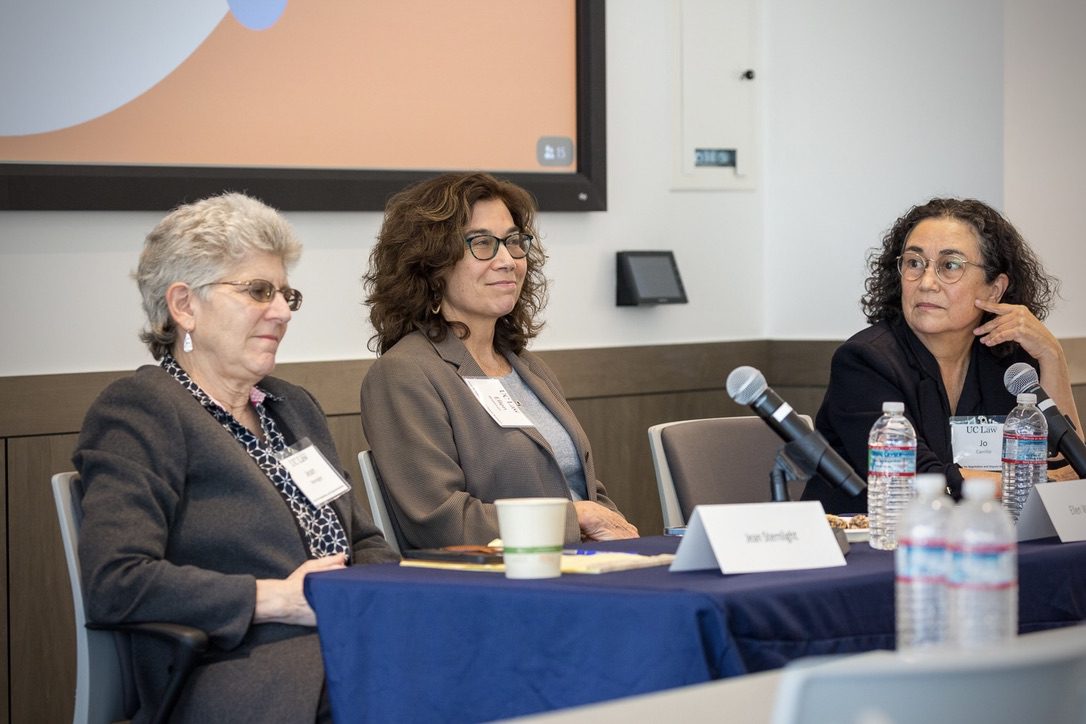
University of Nevada, Las Vegas Law Professor Jean Sternlight, Ellen Waldman of CPR, and UC Law SF Indigenous Law Center Faculty Director Jo Carrillo (left to right) discussed DEI in public process and policy.
“DEI is probably one of the most important issues in our field right now, but thought leaders in this space have come largely from the practitioner community rather than academia,” CNDR Director Hiro Aragaki said. “We wanted to create a forum for academics and researchers to look more closely at these issues, deepen the conversation, and take more of a leadership role in policy proposals around DEI.”
The Nov. 3 conference, held at UC Law SF, featured three panels on DEI issues in international and domestic arbitration, mediation and negotiation, and public processes and policy. The speakers included renowned academics from around the country and abroad, including professors and scholars from UC Law SF, UC Irvine, Yale University, University of Nevada – Las Vegas, Ohio State University, Yeshiva University, Bocconi University in Italy, SOAS University of London, and the International Institute for Conflict Prevention and Resolution (CPR).
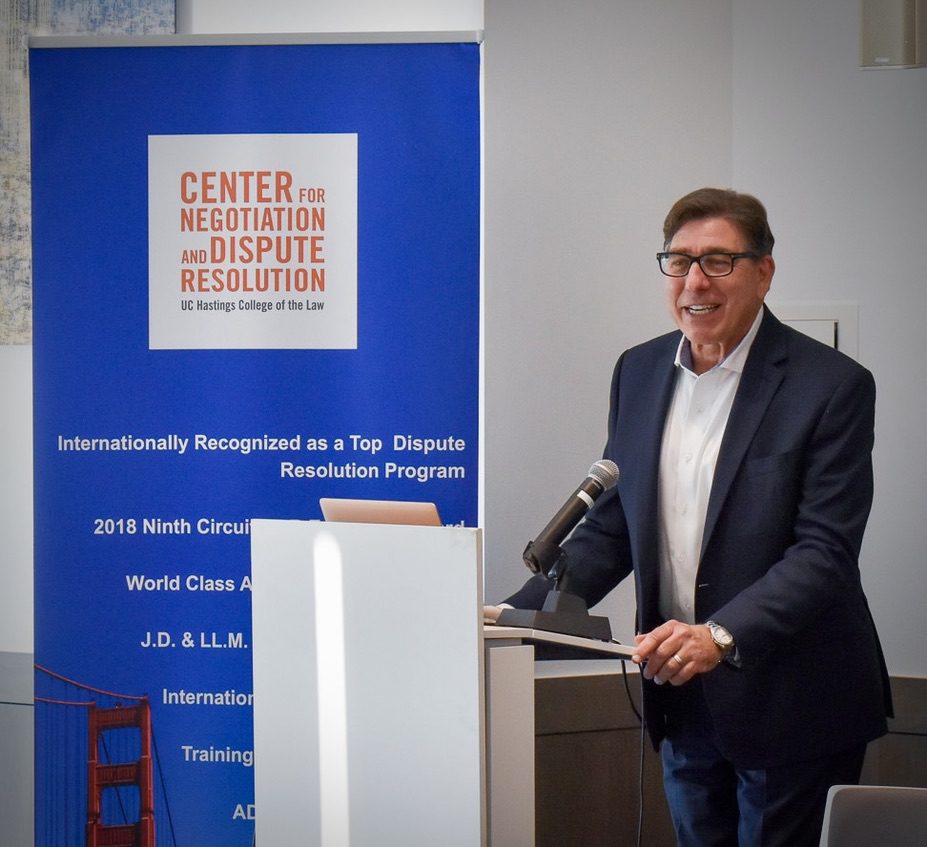
UC Law SF Chancellor & Dean David Faigman spoke about the importance of CNDR to legal education and dispute resolution globally.
During the conference, UC Law SF Chancellor & Dean David Faigman explained why CNDR is important not only to the law school, but, more broadly, to legal education and dispute resolution globally.
“There is no time in our history as a country, or as a world, when the skills taught by CNDR have been more important,” Faigman said. “Searching for compromise and common ground are emblematic of great leadership. That’s what CNDR not only brings to our campus, but to our profession.”
The anniversary festivities weren’t limited to the conference. CNDR also held an elegant reception in the Deb Colloquium Room and Sky Deck of UC law SF’s Cotchett Law Center on Nov. 2. During the reception, CNDR recognized its Founding Director Chris Knowlton and Emerita Faculty Chair Melissa Nelken. It also presented awards to longtime adjunct professors, including Howard Herman, who has taught at UC Law SF for 27 years; James Schurz, with 26 years; and John Dean, recognized for 20 years.
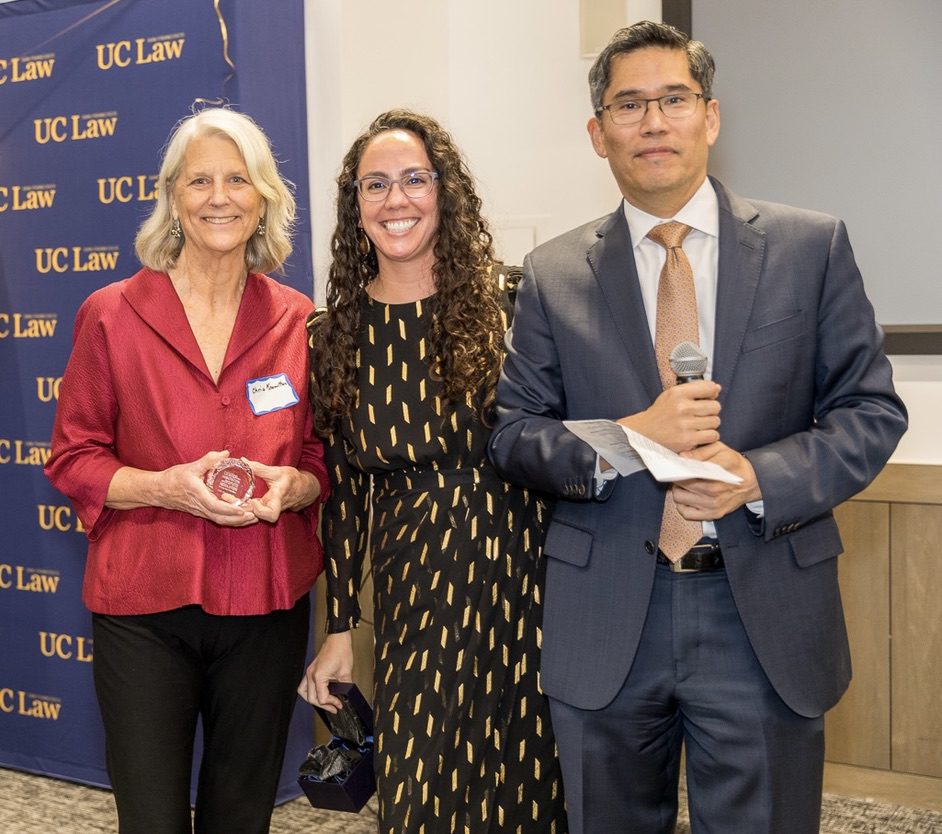
CNDR Director Hiro Aragaki (right) and Deputy Director Mattie Robertson (center) presented an award to CNDR Founding Director Chris Knowlton (left).
CNDR Deputy Director Mattie Robertson ’10 credited the center’s curriculum with inspiring her to become a mediator back when she was a UC Law SF student. In small, intimate classes taught by practitioners, she realized that through ADR she could help parties find more amicable solutions to their disputes. But, she added, CNDR’s curriculum can benefit any law student.
“These are skills that permeate all practice areas and are valuable to students no matter what field they go into,” she said. “Lawyers at the end of the day are here to resolve conflicts.”
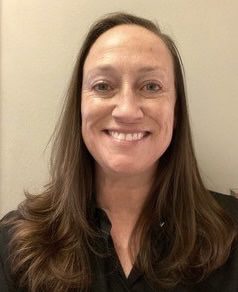
CNDR Senior Academic Program Coordinator Karen Grayson helped plan and organize CNDR’s successful 20th Anniversary events.
Beyond preparing law students, CNDR also offers skills-training courses to real-world practitioners, including hundreds of hearing officers, attorneys and other staff from the California Labor Commission over the last few years.
Looking to the center’s next 20 years, Aragaki said he wants CNDR to continue expanding its global footprint. “It’s inevitable that our graduates will be dealing with clients and opponents who are not U.S.-based,” he said. “The more they are familiar with other approaches to dispute resolution and different legal traditions, the more equipped they will be to function in a global society.”
Other important goals for the center include continuing to rank high among the nation’s ADR programs while continuing to win national student competitions, developing cutting-edge research, and offering courses that integrate theory and practice.
“UC Law SF has a long tradition of helping pioneer the delivery and teaching of skill-based and clinical ADR courses,” Aragaki said. “We want to expand the toolbox for law students and future lawyers, so they understand that there isn’t just one way of resolving their clients’ disputes.”